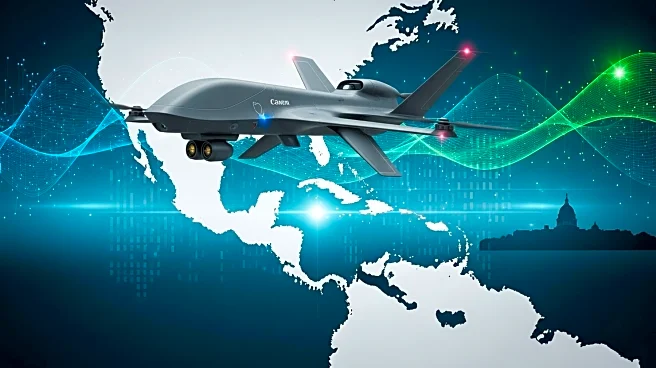What's Happening?
The U.S. Congress is expediting efforts to advance the annual defense authorization bill, which is crucial for determining the spending plans for hundreds of Defense Department programs. This legislative push comes as U.S. Defense Secretary Pete Hegseth and Air Force Gen. Dan Caine, chairman of the Joint Chiefs of Staff, made an unexpected visit to Puerto Rico. The visit is part of the U.S.'s increased military operations against drug cartels in the Caribbean. The Senate has scheduled votes starting September 9 to finalize the military legislation, which also includes the renewal of various military pay and benefits programs. Additionally, the U.S. Navy's new unmanned surveillance aircraft, the MQ-4C Triton, has been approved for initial operations despite identified deficiencies, according to a Pentagon watchdog report.
Why It's Important?
The acceleration of the defense authorization bill is significant as it ensures the continued funding and operation of critical Defense Department programs. This move is particularly timely given the heightened military activities in the Caribbean, which aim to combat drug trafficking. The approval of the MQ-4C Triton, despite its deficiencies, highlights the urgency and demand for advanced surveillance capabilities in military operations. The outcomes of these legislative and operational developments will impact U.S. military readiness and strategic positioning, particularly in regions like the Caribbean where drug cartels pose a significant threat.
What's Next?
As Congress works to finalize the defense authorization bill, potential amendments and negotiations will shape the final legislation. The military's increased presence in the Caribbean may lead to further strategic initiatives to address drug trafficking. The Pentagon's handling of the MQ-4C Triton's deficiencies will be closely monitored, as it could affect future unmanned aircraft deployments and operational effectiveness. Stakeholders, including military leaders and policymakers, will likely continue to assess and respond to these developments to ensure national security and operational efficiency.










